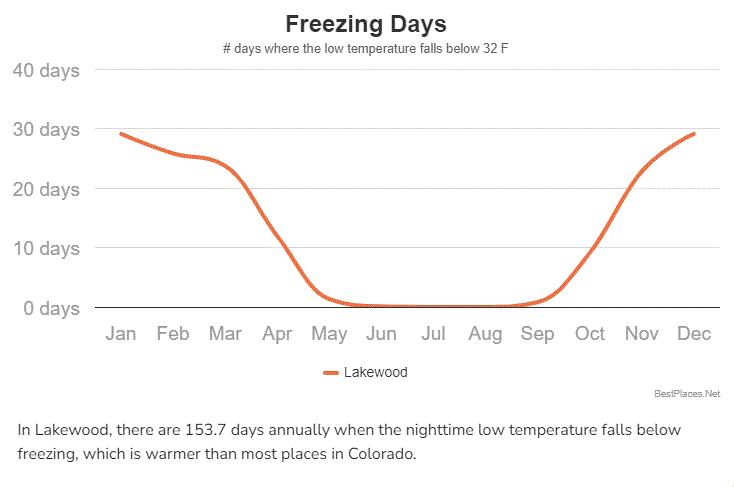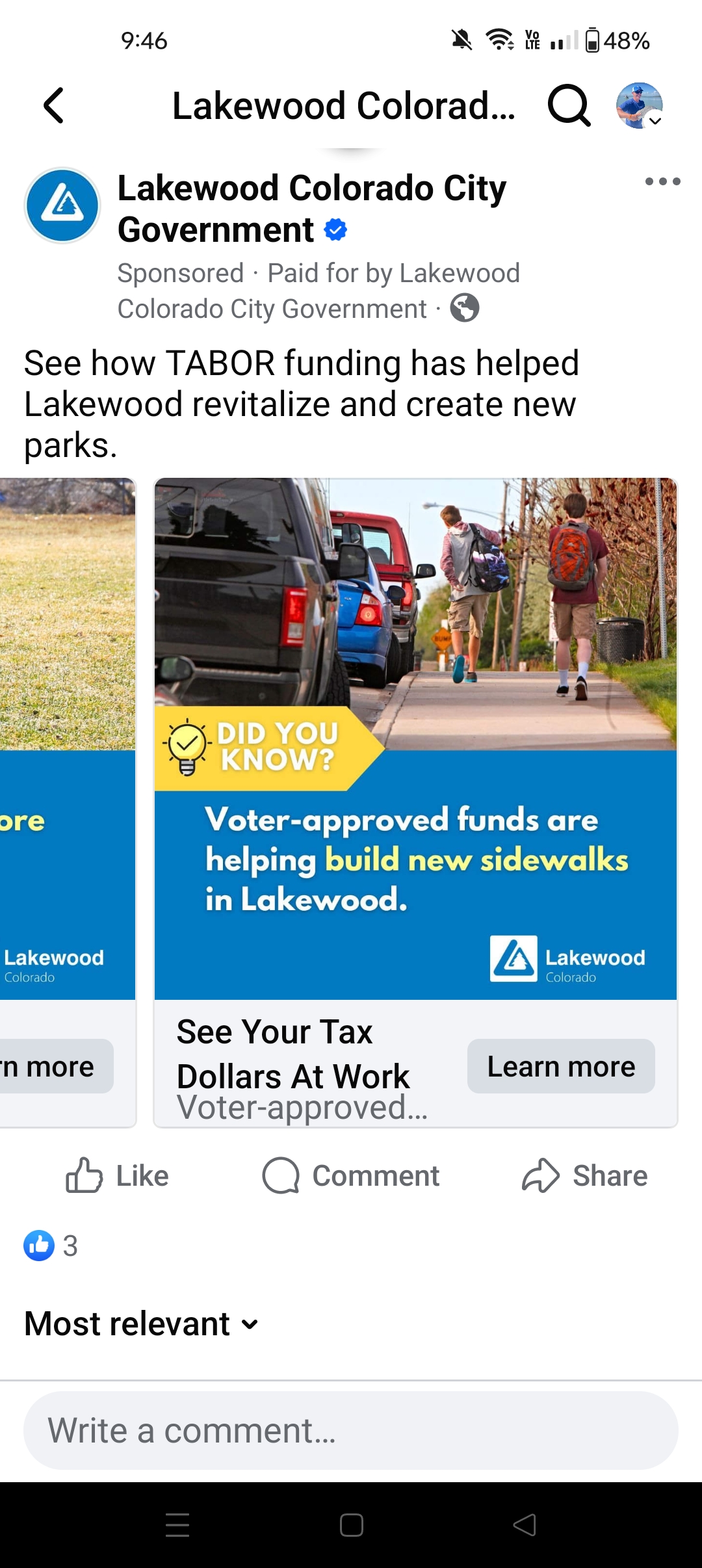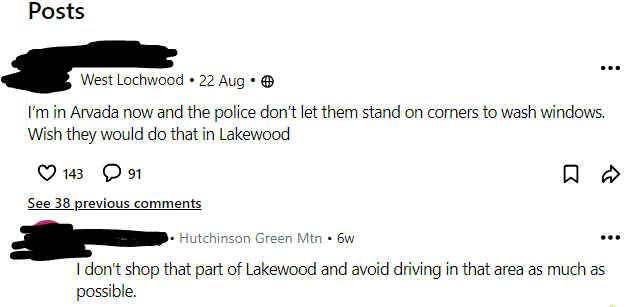In 2023, then-Council Member Mary Janssen and resident Natalie Menten brought to light that Lakewood’s City Charter had a revenue cap to protect residents from rapid property tax increases. Most of city leadership said Janssen and Menten were totally wrong and besides, leadership said, Lakewood needed the money. However, it turns out Janssen and Menten were not wrong, and Lakewood is now adjusting the 2025 mill levy to comply with the City Charter. There will still be a property tax increase for residents, but only half of the previously proposed increase. Lakewood did not explicitly state the reason for the change because residents can sue if the city of Lakewood was found to be over-collecting taxes. Instead, staff only referenced a “complex legal issue.”
Per the new slide presented October 21 (below), the original mill levy would have resulted in $1,561,000 more taxes than 2024 ($872k + $ 689k).
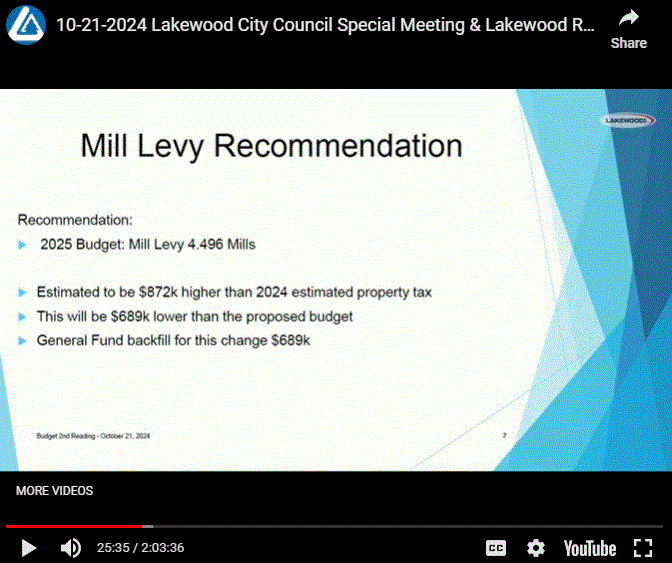
The Budget Book advertised this was a 6.2% increase over the 2024 REVISED BUDGET. However, the revised budget is over $1,000,000 more than the original 2024 budget. The mill levy to collect property taxes was set in the original budget.
In reality, the original 2024 budget to 2025 budget numbers show a 13.5% increase.
Lakewood has been collecting almost double the amount of property taxes allowed by City Charter section 12.12.
No one has said that Mary Janssen or Natalie Menten was correct in their original interpretation of the City Charter, as presented to the Lakewood leadership on October 23, 2023.
No one even said this change was because of the City Charter provision. Instead, there was only a vague sentence explaining that “a complex legal issue has been identified.”
This was a tacit, belated, admission that Mary Janssen and Natalie Menten were right. The city had to lower their mill levy or risk getting sued by the residents for illegally over-collecting property taxes.
For three public meetings on the budget, the mill levy recommendation was an increase to 4.711 mills (about $22 per tax bill). On Monday, October 21, 2024, during the fourth and final budget meeting, city staff recommended increasing the mill levy to only 4.496 mills (about $11 per tax bill).
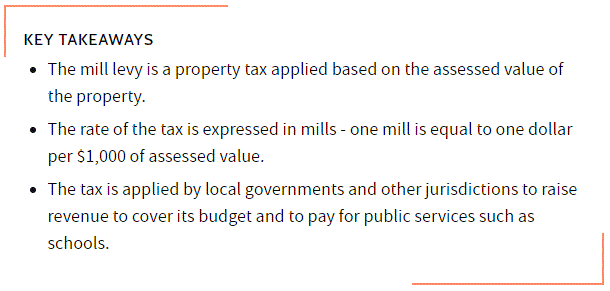
Lakewood could only increase the mill levy by about half the amount they wanted because according to the City Charter they can only collect 7% more in revenue than the previous year, not 13.5% as originally proposed. With this change, Lakewood will only collect about half the amount of property taxes in 2025 as originally proposed.
Another tacit admission that something was wrong involved the lack of conversation surrounding this issue. Not one Council Member questioned why this lower levy was necessary, even though every Councilor – besides Councilor Olver – has advocated for more spending and higher taxes. The lack of opposition or even discussion was highly unusual and points to legal implications that Council may have been privately briefed on the issue. The entire mill levy reduction discussion and vote took less than one minute (41:49 min mark to 42:42 min mark).
Councilor Olver pointed out this was still a property tax increase for Lakewood residents. However, some Councilors disagreed, including Councilors Low and Rein who called the change a tax decrease. Nevertheless, Olver did the math for 2025 from 2024 and stated, “I have to point out that 4.5 is greater than 4.2. That’s my math and I’m sticking to it.“

